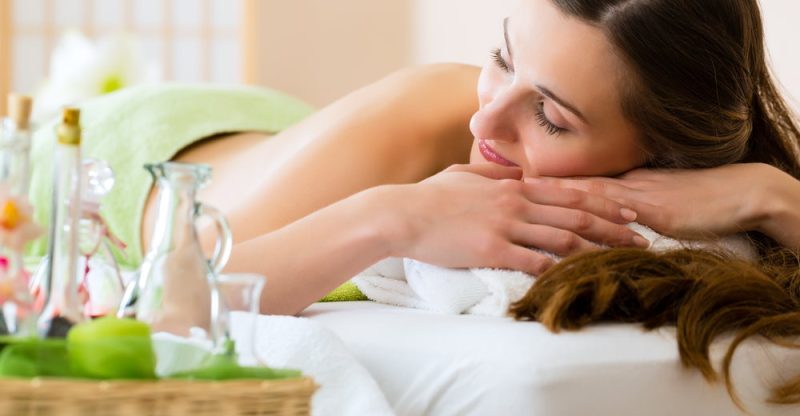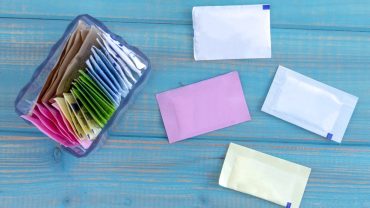7 Essential Oils for Anxiety
What are essential oils? Essential Oils- the essence of plants with organic and natural properties. There are over 300 different essential oils used for centuries in aromatherapy, healing, cosmetics, and more to create beautiful scents. Some popular ones include Lavender, Tea Tree Oil, and Citronella oil.
Essential oils have been used for millennia, going back to the time of Jesus’ birth, when he was anointed with Frankincense and myrrh. They’ve been used in different societies from ancient times, including China, Egypt, India, and Southern Europe.
As part of the embalming process, certain essential oils have even been administered to the corpse. We know this because traces of the substance have been discovered in graves going back over 2,000 years! Essential oils are also widely used in aromatherapy, which was pioneered by French physician Jean Valnet, who discovered that essential oils might aid in treating troops during World War II when pharmaceuticals were few.
Essential oils are natural since they are produced from flowers, leaves, bark, or roots of plants. While it’s preferable to use pure essential oils, which haven’t been diluted with chemicals or additions, they may provide much-needed comfort and healing for a range of conditions, including a natural anxiety cure.
Essential Oils That Work
Anxiety is a difficult battle to fight daily, so having a natural cure, such as an essential oil combination.
58 hospice patients were given hand massages once a day for one week with an essential oil combination in 1.5 percent dilution with sweet almond oil in a recent 2014 research by the American College of Healthcare Sciences. Bergamot, Frankincense, and lavender essential oils were used equally in the essential oil combination.
All of the patients who got the aromatherapy hand massage had decreased pain and sadness, indicating that aromatherapy massage with this essential oil combination is more beneficial than massage alone for pain and depression treatment.
The following are some of the most effective essential oils for anxiety:
1. Lavender oil
Lavender oil is the most often used essential oil, and it has a soothing and relaxing effect. It’s a nervous system tonic that may aid with anxiety, insomnia, restlessness, irritability, panic attacks, nervous tension, and an anxious stomach. It’s one of the greatest essential oils for reducing anxiety.
According to “The Handbook of Essential Oils: Science, Technology, and Applications, Second Edition,” several clinical investigations using lavender essential oil inhalation have decreased tension and anxiety.
While viewing an anxiety-provoking video, research employing oral lavender essential oil through capsules discovered that heart rate variation rose considerably compared to the placebo. This indicated that lavender might have anxiolytic properties.
Lavender’s potential to reduce anxiety in patients having coronary artery bypass surgery and persons visiting the dentist has been shown in another study.
Simply add lavender oil to a diffuser, bathwater, or spray bottle filled with water to encourage relaxation. Many essential oils, such as geranium oil, ylang-ylang oil, and chamomile oil, go well with it. Lavender may also be used topically on the wrists, temples, and back of the neck.
2. Rose oil
Rose essential oil has a calming effect on the emotional heart. It is likely the second most popular lavender for treating anxiety and depression, panic attacks, grief, and shock.
One group of women had a 10-minute inhalation and footbath with an oil rose. In contrast, another group received a 10-minute warm-water footbath, and they were compared to a control group in a research published in the Iranian Red Crescent Medical Journal. “Aromatherapy and footbath alleviate anxiety in nulliparous women throughout the active period,” according to the results.
3. Vetiver oil
Vetiver oil offers a calming, grounding, and soothing energy that is often used in trauma to aid self-awareness, tranquility, and stability. In addition, it works as a nervous system tonic, reducing jitteriness and hypersensitivity while also helping with panic episodes and shock.
An investigation of anxiety-like behavior in rats published in Natural Product Research showed that vetiver oil might effectively reduce anxiety symptoms. In contrast, further research is required to substantiate this conclusion.
4. Ylang Ylang oil
Because of its relaxing and uplifting properties, this popular essential oil may help with anxiety and despair. Ylang-ylang promotes happiness, bravery, optimism and calms anxiety. It is a fairly powerful sedative that might aid with sleeplessness and may soothe heart tension and anxious palpitations.
Using ylang ylang oil, along with bergamot and lavender oils, once a day for four weeks reduced “psychological stress responses and serum cortisol levels, as well as the blood pressure of clients with essential hypertension,” according to a 2006 study conducted by Geochang Provincial College in Korea.
When using ylang ylang, be cautious since it may be sensitizing or irritating to the skin; avoid using it if you have low blood pressure. Instead, begin by diffusing it around your house. It goes great with jasmine and lavender essential oils.
5. Bergamot
Bergamot is a citrus fruit with a flowery flavor and scent that is typically used in Earl Grey tea. Bergamot oil is relaxing and is often used to treat depression by giving energy; however, it may also be used to cure insomnia, relax, and decrease agitation.
It has been shown to lower corticosterone response to stress in rats. Another fascinating research from 2011 hypothesizes that applying bergamot essential oil to participants might aid with depression or anxiety. Lavender and bergamot essential oils were included in the combination.
The blended essential oil produced substantial natural methods to lower blood pressure and pulse rate than the placebo, and participants in the blended essential oil group evaluated themselves as “more tranquil” and “more relaxed” than the control group.
Bergamot is typically harmless; however, it is photosensitizing, which means it might make you more sensitive to the sun and cause a rash. Therefore, it’s advisable to avoid using it if you’ve been in the sun for more than 12 hours.
6. Chamomile oil
Chamomile is a soothing, relaxing smell that promotes inner serenity and reduces impatience, overthinking anxiety, and concern. An exploratory investigation on the antidepressant action of chamomile done at the University of Pennsylvania School of Medicine discovered that this essential oil “may produce clinically relevant antidepressant activity that occurs in addition to its previously documented anxiolytic effect.”
Chamomile pills have been demonstrated to lessen anxiety symptoms in another research published by the National Center for Complementary and Integrative Health.
Chamomile oil is typically harmless, except for a tiny risk of allergies, particularly in those who are allergic to ragweed.
7. Frankincense oil
Because it emits peaceful and serene energy and spiritual grounding, Frankincense is effective in the treatment of depression and anxiety. In addition, it aids in the deepening of meditation and the quieting of the mind in aromatherapy, which may assist with concerns like chronic stress.
In research conducted by Keimyung University in Korea, Frankincense positively impacted pain and despair in hospice patients with terminal cancer when mixed 1:1 with bergamot and lavender oils in an aroma hand massage.
How to Make Use of
Aromatherapy
Because our sense of smell causes significant emotional reactions, aromatherapy for anxiety is highly popular. Our sense of smell helps us digest a lot of information, especially in a section of the brain close to the limbic region, as explained in Marcey Shapiro and Barbara Vivino’s book “Freedom from Anxiety: A Holistic Approach to Emotional Well-Being.” Emotional processing and memory recall fall under this category.
When you inhale the aroma of essential oil, molecules enter your nasal canals and trigger a mental reaction in your limbic system. These stimulants control heart rate, breathing patterns, hormone production, blood pressure, and other stress or soothing reactions.
Aromatherapy may be received by direct inhalation, hot water vapor, vaporizer or humidifier, fan, vent, perfume, cologne, or aromatherapy diffusers.
Oral Administration
Many essential oils may be used by mouth, but it’s important to be sure the oils you’re using are safe and pure. Many oils on the market are likely to be diluted or combined with synthetics that are harmful to consume. The Food and Drug Administration has awarded several essential oils the GRAS (generally recognized as safe) certification for human consumption, allowing them to be used internally.
According to studies, adding a drop of oil to a glass of water or a teaspoon of honey to a teaspoon of honey is the most efficient method to take them. Then, simply place a drop or two under your tongue. Because the blood capillaries beneath the tongue are so near to the surface of the tissue, they may enter more rapidly into the circulation and go to the various parts of the body where they’re required.
Capsules, adding a drop or two to your favorite beverage, creating a tea, and cooking is other oral application alternatives.
Apply Topically
Many people choose to utilize essential oils topically. The technique of applying an essential oil to the skin, hair, mouth, teeth, nails, or mucous membranes of the body is known as a topical application. When the oils come into contact with the skin, they absorb quickly.
Because they’re so strong, you should dilute and combine them with a carrier oil such as sweet almond, jojoba, olive, avocado, or coconut oil. Then you may use compresses, baths, or massage to administer the mix directly to a problematic region, such as the soles of your feet or the rims of your ears.
Precautions
Without adequate training or medical supervision, never drink essential oils or apply them to undiluted skin. It’s crucial to know how to make the most of them.
Always seek professional advice and test the region, exercising care since they may respond differently in different people, particularly youngsters and pregnant women.
Last Thoughts
- Using soothing essential oils to alleviate anxiety and promote relaxation is simple and natural.
- Lavender, chamomile, ylang-ylang, bergamot, and Frankincense are some of the greatest essential oils for anxiety.
- Aromatically, these oils may be utilized to create a tranquil, soothing atmosphere. Essential oils may also be applied directly to the wrists and temples to help ease tension.
Frequently Asked Questions
Which essential oil calms anxiety?
A: Peppermint essential oil is highly recommended for calming anxiety. It also has a cooling effect and can help alleviate muscle spasms in the body.
Where do you rub essential oils for anxiety?
A: You can rub essential oils for anxiety on the bottoms of your feet where you feel a lot of tension. This is one suggestion, but there are plenty more out there!
What essential is oil good for anxiety and depression?
A: A great essential oil for anxiety and depression is lavender. This oil is known to be a very calming scent that can help you feel better by relieving stress and tension.
FDA Compliance
The information on this website has not been evaluated by the Food & Drug Administration or any other medical body. We do not aim to diagnose, treat, cure or prevent any illness or disease. Information is shared for educational purposes only. You must consult your doctor before acting on any content on this website, especially if you are pregnant, nursing, taking medication, or have a medical condition.
HOW WOULD YOU RATE THIS ARTICLE?





